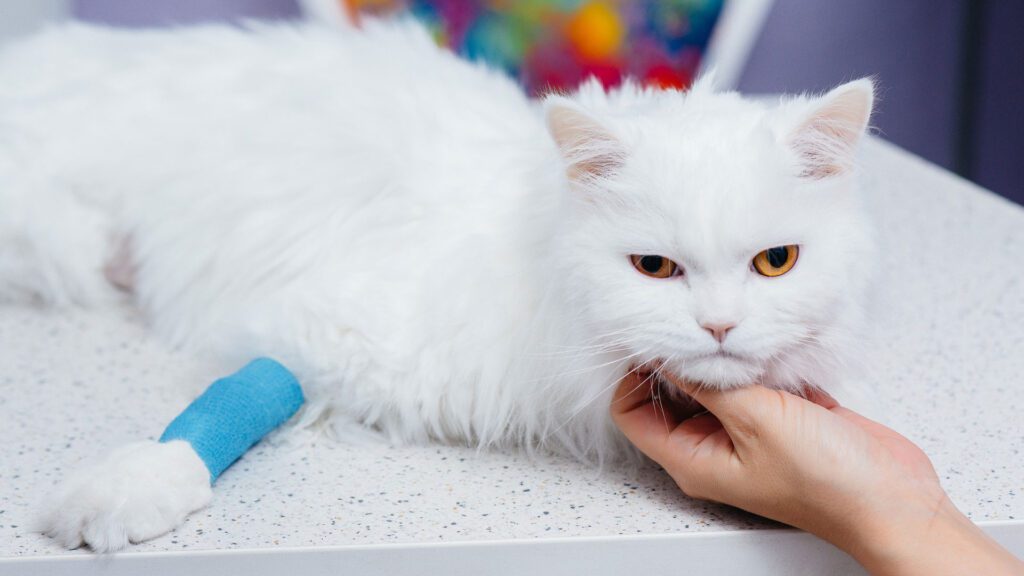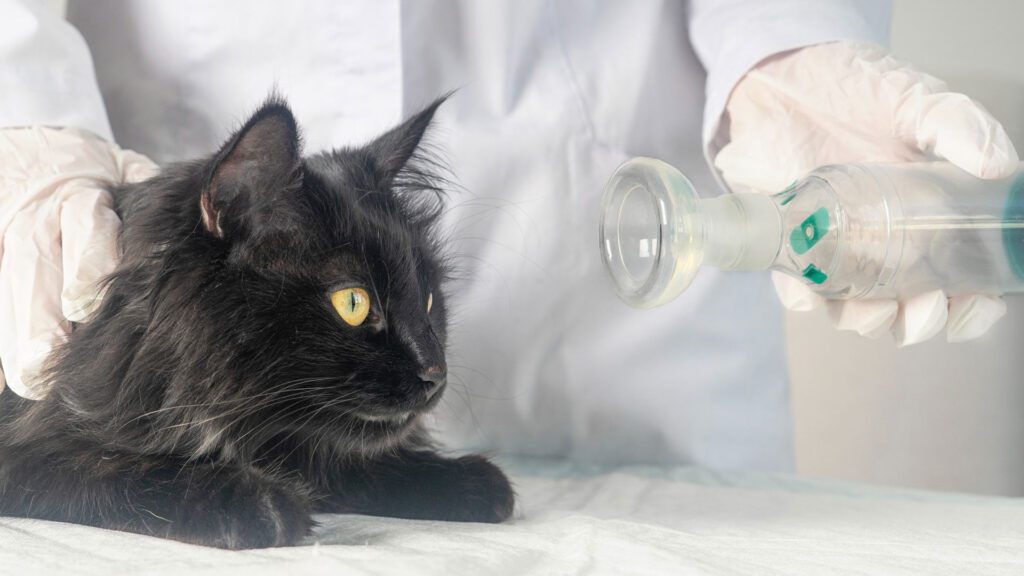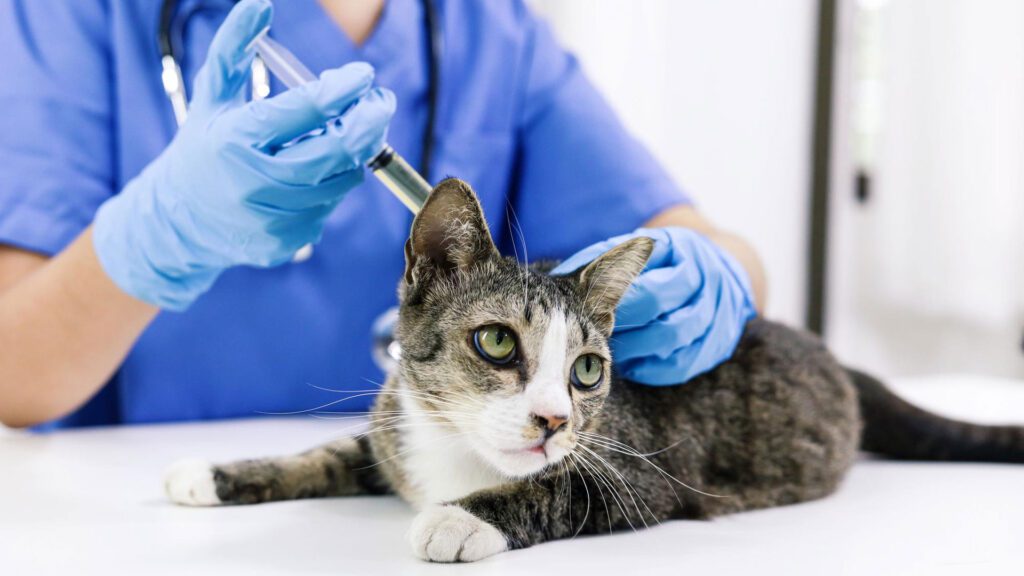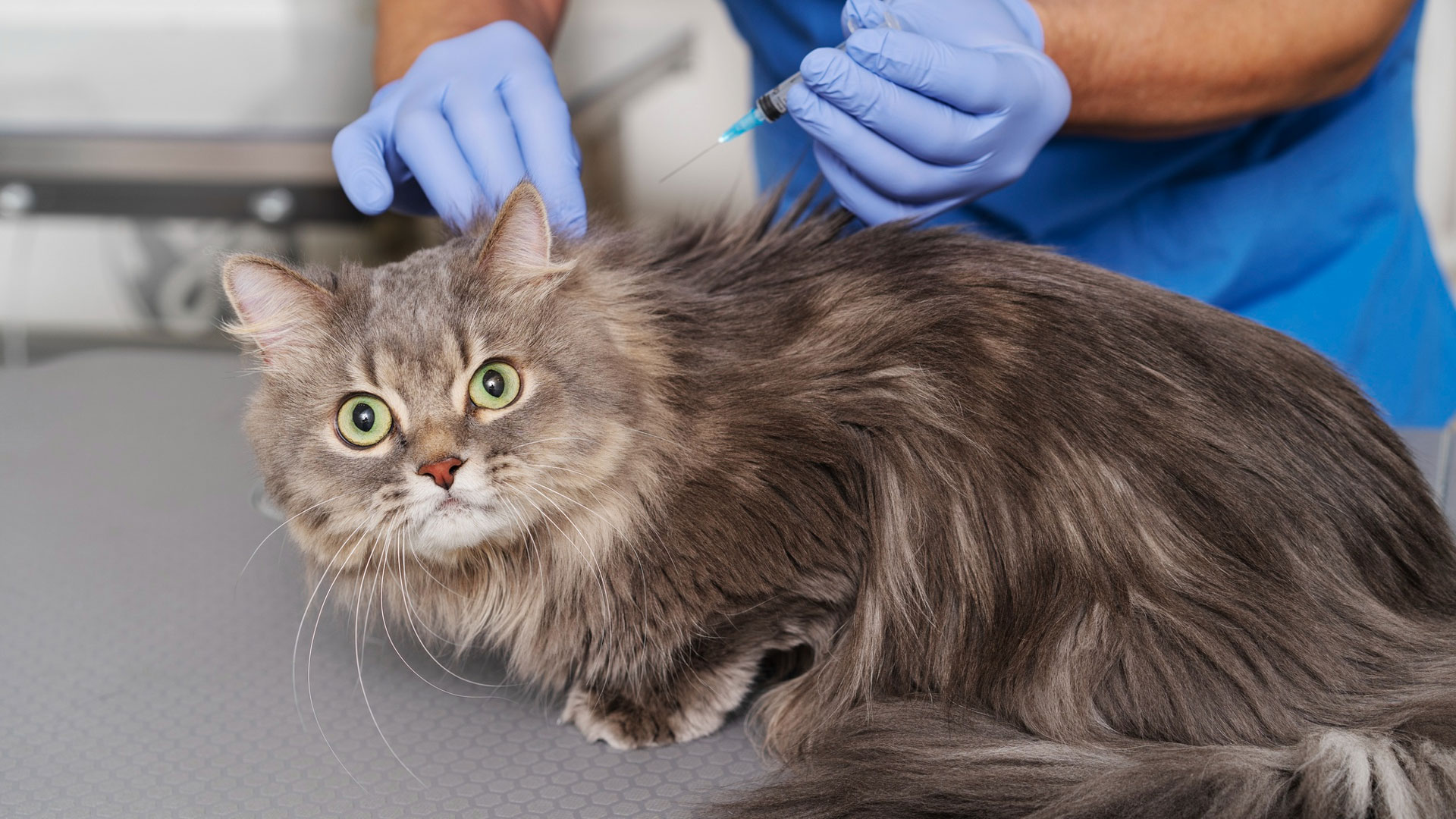This is for those cat owners who are hesitant on giving their cats anesthesia.
Read on and you’ll find the answer to how long does anesthesia last in cats and much more.

Why Does My Cat Need General Anesthesia

Anesthesia is a way to control pain during surgery or other medical procedures for cats. It’s like a deep sleep, making it safer and more comfortable for the veterinary technicians to work.
Your cat may find anesthesia necessary when they are spayed or neutered. In addition, veterinary technicians use anesthesia for any kind of surgery or fractured bone repair that might impact the airway.
Two Common Anesthetic Procedures For Cats
Here are the two most common types of anesthesia used in veterinary hospitals:
Gas Anesthesia

In gas anesthesia, cats breathe in this special medical gas through a mask or a tube.
Veterinarians like using gas because they can control how much the cat breathes, adjusting the level of anesthesia as needed during the procedure.
It’s also known for its rapid recovery times, meaning your cat will wake up quicker once the gas is turned off.
Injectable Anesthesia

This type of anesthesia is given with a syringe and needle, similar to a vaccination shot.
It is often chosen for its ease of use, especially when setting up gas anesthesia might be impractical. However, the wake-up time can vary depending on the specific medication used.
Difference Between Anesthesia and Sedation
| Anesthesia | Sedatives |
| completely unconscious | semi-conscious |
| involves major organs | used for dental procedures and mild examinations |
| takes a long time | takes a relatively shorter time |
Before Anesthesia — Exam and Lab Work
Prior to anesthesia, a thorough check up will be performed to keep your cat ready and assess fitness.
In this check up, cats need an exam and the vet will conduct blood work and x-rays. They’ll also monitor heart beat and may even measure the weight of your cat. This is done to minimize the risks associated with it.
Possible Complications of Anesthesia
While anesthesia may make things easier, there are also risks of anesthesia your cat could experience.
Some of the risks associated with anesthesia include:
lower heart rate or respiratory levels
nausea and vomiting
aspiration pneumonia
That being said, it is not likely that these will occur as veterinary clinics are equipped with up-to-date anesthetic agents. Your cat’s behavior, heart rate, and body temperature are all being closely monitored, ensuring your cat under anesthesia is as safe as possible.
During Cat Anesthesia
During the procedure, an endotracheal tube (breathing tube) is inserted in your pet to help keep the airway open. This allows the oxygen to continue its flow.
Waking Up — Side Effects of Anesthesia
After the cat is coming out of anesthesia, it might take some time to get back to its usual self. This groggy period can vary, taking just a few hours for some cats, while others might need several hours to fully wake up.
Be patient with them and remember each cat is different and unique!
FAQs (Frequently Asked Questions)
Is it possible that my cat could die during anesthesia?
Yes, anesthetic death is possible but also an unlikely risk under anesthesia.
You don’t need to worry as all vets take the utmost precautions to make sure the cat is safe while undergoing anesthesia.
Which kind of anesthesia is used commonly?
Injectables are more commonly used in medical practices due to its effectiveness and ease of access.
You should still talk to your vet about this to get a better understanding.
Will my cat receive any pain medication?
Most likely, yes.
You still need to confirm this with your veterinarian and the side effects related to it, if any.
How should I prepare my cat for anesthesia?
One important step is to restrict their food before anesthesia. If your cat has food in their stomach during anesthesia, it could cause them to vomit while they are unconscious.
The veterinarians will handle the rest of the preparations.
Are specific breeds at higher risk?
The Maine Coon is generally at a higher risk for heart diseases. Smoosh-faced cats including Persians, could have a difficult time too because of the breathing.
How long will it take for my cat to recover from anesthesia?
The duration of anesthesia varies depending on each case, usually it takes 12 to 24 hours after anesthesia to recover.
Would my cat require frequent veterinary attention after?
It’s not really necessary if your cat is doing fine. If you have any concerns or if your cat is not back to normal in a few days, please do reach out to your vet.





